When New Year's wishes were exchanged at the beginning of 2021, "the pivotal year of 2020 was behind us and we began the post-COVID era with optimism", it was assumed. COVID, however, is still around. It has become omnipresent and is determining the ins and outs of many sectors. This also applies to the fruit and vegetable sector. BelOrta, with a product turnover of 497 million euros in 2021, achieved its highest turnover ever, although this was accompanied by yet another uncertain year for producers, trade, suppliers and consumers. In addition to COVID, the extremely wet summer, the scarcity of raw materials and the high energy costs also had an impact on the course and results of 2021, according to the cooperative.
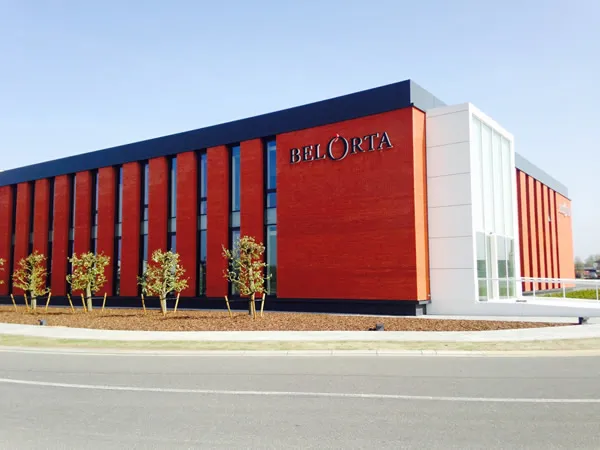
Pressure from Southern Europe for fruiting vegetables, a year with two sides for field vegetables
"With vegetables, we see very different results depending on the product group. As far as tomatoes are concerned, we have noticed a decrease in volume, but here we can speak of a rather normal harvest. The top productions that we often experienced in recent years did not occur, due to the weather not being as sunny. These lower productions, together with a decreased acreage in Spain and a cold wave in Southern Europe, resulted in better tomato prices. In the autumn, the sky-high fuel prices and the strong supply of tomatoes from southern regions then put the autumn and lit crops under pressure again. This cheaper competition from the South also played a major role for many fruit vegetables. Area expansions in Europe (e.g. in Poland) resulted in difficult pricing for courgettes, peppers and aubergines, among others."
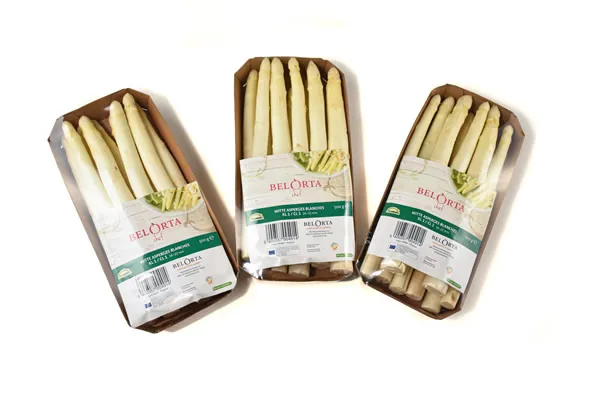
"For field vegetables, too, we experienced a year that moved at two different paces. Asparagus had good prices until April, partly due to a relatively limited harvest and strong demand. From May onwards, a higher supply and declining interest resulted in tougher sales. The spring of 2021 brought good prices for leeks, due to the limited harvest. The autumn of 2021 was characterised by a weaker market situation. Cauliflower had a moderate year in terms of pricing. The supply went its normal course, as did the demand. The increase in the supply of winter cauliflowers and the extension of the harvesting season, as a result of which BelOrta can also offer locally grown cauliflowers in the winter months, is remarkable."
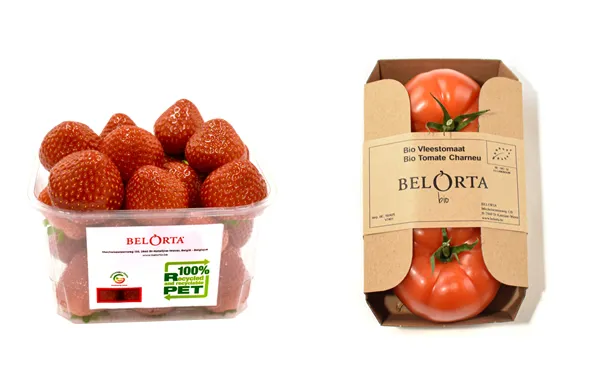
"Overall, 2021 was one of the better years for chicory. Lower productions of chicory roots in 2020 ensured that the chicory supply remained manageable for a large part of 2021. The beginning of the year had a balanced market with correct prices. A cold spring led to good demand and good prices in April and May. A mild September was again detrimental to the demand for chicory, but the market recovered in October and early November with better prices. December again saw an internationally increased supply. The combination with the mild weather led to a more difficult market. There were no major shifts in supply volume this year. At product level, we saw an increase in the supply of aubergines, cucumbers, multicoloured lettuce and tomato specialities, while we saw a decrease in the supply of courgettes and tomatoes on the vine."
Wettest summer ever causes decline in fruit production, but also consumption
2021 was a year of highs and lows for many fruit varieties. The wettest summer since records began can be seen as a major cause of this. The poor summer weather reduced the production and consumption of strawberries and berries. The spring and autumn did perform according to normal expectations, but this could not compensate for the weak summer period.
The Belgian cherry season was literally ruined last year. Freezing temperatures in the spring caused damage to many parcels of land. Moreover, the cherry harvesting period fell right in the middle of a period of exceptionally high precipitation, resulting in a very limited harvest.
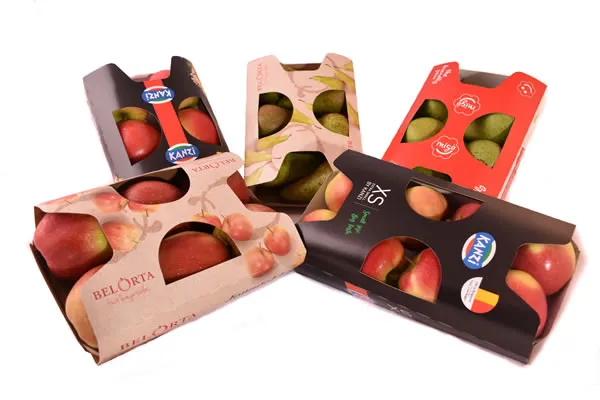
The top fruit year was also divided. The low supply of apples achieved reasonable prices in the spring of 2021, while the large harvest in the autumn, combined with high supplies from Central and Eastern Europe, resulted in a difficult market situation. For pears we saw the opposite story, with a large harvest and a more difficult market situation in the spring and a smaller European harvest with better prices in the autumn.
Organic growth continues, BelOrta launches EARTH label for products in transition
Organic products also had to contend with the at times atypical weather conditions. "Nevertheless, this did not stop our growers from further expanding the organic acreage at BelOrta. For example, this year organic asparagus was available from BelOrta for the first time. Organic cucumbers, chicory and vine tomatoes remain the top three references in the organic range. Larger volumes in fruit are seen in Jonagold, Conference and blueberry."
In addition, BelOrta also launched the EARTH label in 2021, a label for products in transition With this, we want to provide more and better information to both trade and consumers, while also creating better market opportunities for these vegetables and fruits in transition. The launch of the label was widely applauded at national and international level.
BelOrta becomes more sustainable
In 2021, BelOrta continued to follow the path of sustainable and socially responsible business. For example, the declaration of intent "For a planet with no food waste" by Too Good To Go was signed in March. Since then, BelOrta has been throwing itself even more emphatically into the fight against food waste as a Waste Warrior Brand.
In the area of packaging, BelOrta's sustainability initiatives in 2021 included the very first fully circular strawberry punnet. This innovative punnet is made of 100% recycled PET (r-PET) and is itself 100% recyclable. This means that every empty strawberry punnet can be processed and reused as a raw material for new packaging. By switching to r-PET, BelOrta is reducing its CO2 emissions by no less than 450 tonnes a year.
Another important milestone in 2021 was the switch from blue rigid crates to green collapsible crates. One lorry of such empty collapsible crates replaces no less than 5.4 lorries of rigid crates. This means an annual reduction in emissions of 1,080 tonnes of CO2.
Towards an amazingly pleasant 2022 with our growers as ambassadors
Since 2020, BelOrta has been able to call itself the best-known Belgian fruit and vegetable brand, a position that was reinforced this year with a brand new marketing campaign, based on the "Pleasant for..." baseline. This year saw the launch of the BelOrta Greenhouse, the world's very first hybrid foodtruck-serre, the consumer website www.belorta.be was given a makeover (including a brand new recipe platform) and www.verbazendplezant.be was launched.
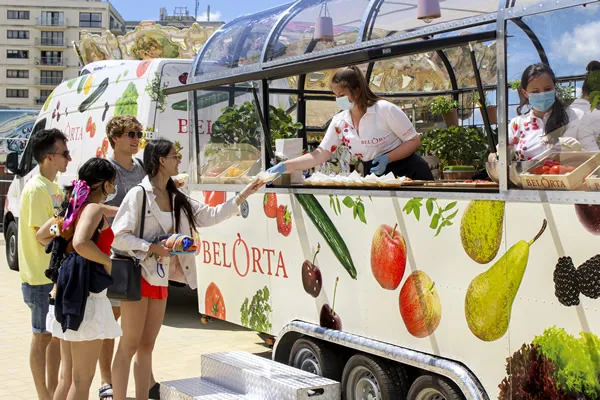
"In 2022 we will continue to build on the momentum of our new marketing campaign and, even more than before, we will be putting our growers in the spotlight as ambassadors. BelOrta is therefore of, for and by producers. Thanks to the unceasing efforts and dedication of our growers, last year we were also able to continuously serve the Belgian consumer with delicious fresh vegetables and fruit, regardless of lockdowns, catering closures, health crises, etc."
Bravely entering a new year 2022 full of challenges
2022 also promises to be a year full of challenges and uncertainties. Rising logistics, energy and labour costs, general inflation, the next Brexit phase, long delivery times and a great deal of uncertainty surrounding the availability of raw materials are causing concern. In addition, the market is constantly changing, with new retail models and consumer expectations, so it is important to act quickly. BelOrta therefore continues to invest in research into diversification for our growers. Promising new varieties and species in fruit and vegetables will be introduced and will enrich the supply. "In this way we are still looking ahead with positivity. In the coming year, the approximately 1,000 BelOrta growers will once again dedicate themselves to providing the tastiest, highest-quality vegetables and juiciest fruit every day. Locally grown, and therefore very fresh, full of flavour and amazingly enjoyable for everyone at the table."
For more information: 
Philippe Appeltans, general director
BelOrta
Tel: +32(0)15 55 11 11
philippe.appeltans@belorta.be
www.belorta.be
